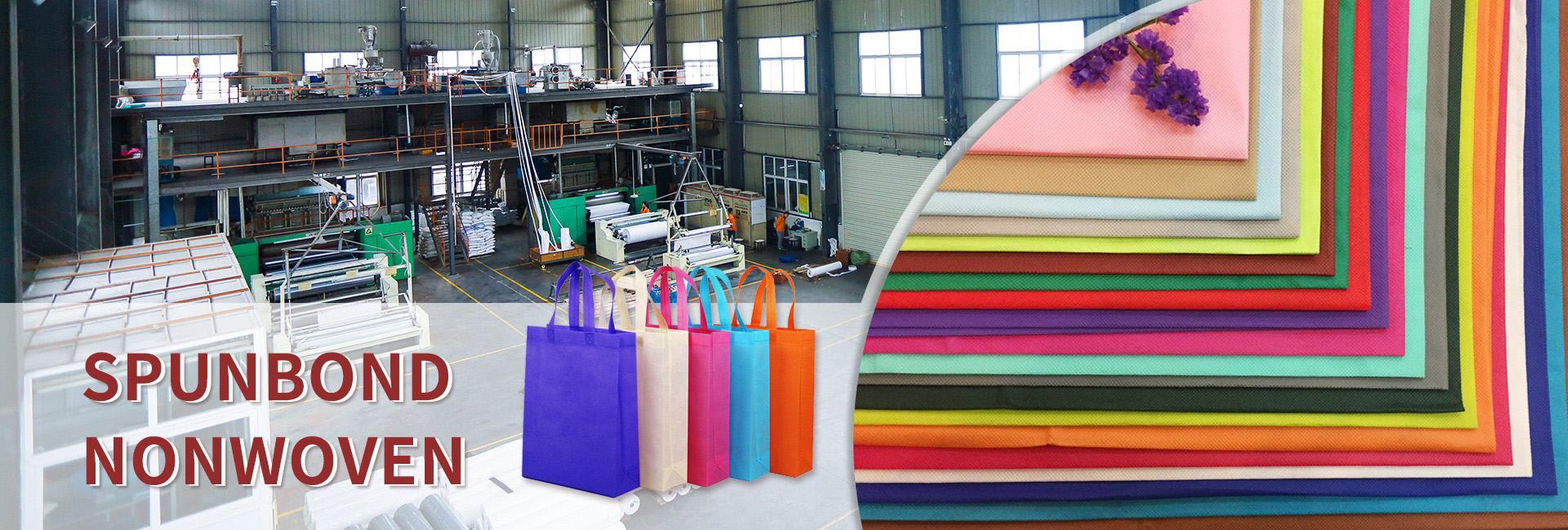Polyester non-woven fabric is a material made of polyester fibers through non-woven technology, which has the characteristics of lightweight, soft, durable, good breathability, and easy processing. In recent years, with the increasing demand for quality of life, geothermal blankets, as an emerging household item, have gradually gained popularity among consumers. So, is polyester non-woven fabric suitable as a filling material for geothermal blankets? This article will analyze the characteristics of polyester non-woven fabric, the functional requirements of thermal blankets, and the feasibility of combining the two.
Characteristics of polyester nonwoven fabric
Lightweight and soft
Durable polyester nonwoven fabric is made of polyester fibers, with a lightweight and soft texture, and a comfortable touch. This characteristic makes it very suitable for products that come into direct contact with the human body, such as fillers for geothermal blankets.
Strong durability
Polyester fibers have high strength and wear resistance, and can withstand multiple washes and uses without deformation or damage. This is an important advantage for geothermal blankets that require long-term use.
Good breathability
Polyester non-woven fabric has good breathability and can effectively regulate humidity and temperature, avoiding stuffiness caused by long-term use. This is particularly important for geothermal blankets, as they need to maintain a comfortable temperature and humidity during use.
Easy to process
Polyester non-woven fabric can be processed through various techniques such as hot pressing and needle punching, and its thickness, density, and shape can be adjusted according to different needs. This flexibility enables it to adapt to the design requirements of geothermal blankets.
Environmental friendliness
Polyester non-woven fabric is recyclable and produces less waste during the production process, which is in line with modern environmental protection concepts. This is a plus point for consumers who value sustainable development.
Functional requirements of geothermal blanket
Geothermal blanket is a household item that provides warmth through built-in heating elements, mainly used for winter heating or relieving physical fatigue. Its core functional requirements include:
Warmth
The main function of geothermal blanket is to provide warmth, so its filling material needs to have good insulation performance, which can effectively lock in heat and avoid heat loss.
Comfort
Geothermal blankets come into direct contact with the human body, so their filling needs to be soft and breathable, providing a comfortable touch and avoiding stuffiness or discomfort caused by prolonged use.
Security
The geothermal blanket is equipped with heating elements, so its filling material needs to have certain flame retardancy and high temperature resistance to ensure safety during use.
Durability
Geothermal blankets require long-term use, therefore their filling material needs to have high durability, able to withstand multiple washes and uses without deformation or damage.
Environmental friendliness
With the increasing awareness of environmental protection among consumers, the filling material of geothermal blankets also needs to meet environmental requirements, avoiding the use of harmful substances or materials that are difficult to degrade.
Feasibility analysis of polyester non-woven fabric as a filling material for geothermal blanket
Warmth
Breathable Polyester non-woven fabric itself has certain insulation properties, but its insulation effect may not be as significant as natural fibers such as wool or cotton. However, by adjusting the thickness and density of polyester non-woven fabric, its insulation performance can be further improved to meet the insulation needs of geothermal blankets.
Comfort
Polyester non-woven fabric is soft and breathable, providing a comfortable touch, making it ideal as a filling material for geothermal blankets. Its breathability can effectively regulate the temperature and humidity of the geothermal blanket, avoiding the stuffiness caused by long-term use.
Security
Polyester non-woven fabric has certain flame retardancy and high temperature resistance, which can improve the safety of geothermal blankets to a certain extent. However, to further ensure safety, it is recommended to combine other flame retardant materials or technologies when using polyester non-woven fabric as a filler.
Durability
Polyester non-woven fabric has high strength and wear resistance, and can withstand multiple washes and uses without deformation or damage. This makes it very suitable as a filling material for geothermal blankets, which can meet the needs of long-term use.
Environmental friendliness
Polyester non-woven fabric is recyclable and produces less waste during the production process, which is in line with modern environmental protection concepts. This makes it an environmentally friendly material that is highly suitable as a filling material for geothermal blankets.
Comparison between polyester non-woven fabric and other filling materials
Comparison with natural fibers
Natural fibers such as wool and cotton have better insulation and environmental friendliness, but they are expensive and prone to moisture and bacterial growth. In contrast, environmentally friendly material polyester non-woven fabric is more affordable in price and has better durability and ease of cleaning.
Comparison with chemical fiber materials
Although chemical fiber materials (such as polyurethane foam) have good warmth retention and softness, their permeability is poor, and harmful substances may be produced in the production process. In contrast, polyester non-woven fabric has better breathability and environmental friendliness, making it more suitable as a filling material for geothermal blankets.
Conclusion
In summary, polyester non-woven fabric, as a lightweight, soft, durable, breathable, and environmentally friendly material, is very suitable as a filling material for geothermal blankets. Its excellent comfort and durability can meet the core functional requirements of geothermal blankets, while its environmental friendliness and ease of processing also meet the expectations of modern consumers. Although its thermal insulation may be slightly inferior to natural fibers, its insulation performance can be further improved by adjusting its thickness and density. Therefore, polyester non-woven fabric is an ideal filling material for geothermal blankets, which can provide users with a comfortable, safe, and environmentally friendly user experience.
Dongguan Liansheng Non woven Technology Co., Ltd. was established in May 2020. It is a large-scale non-woven fabric production enterprise integrating research and development, production, and sales. It can produce various colors of PP spunbond non-woven fabrics with a width of less than 3.2 meters from 9 grams to 300 grams.
Post time: Jun-24-2025

